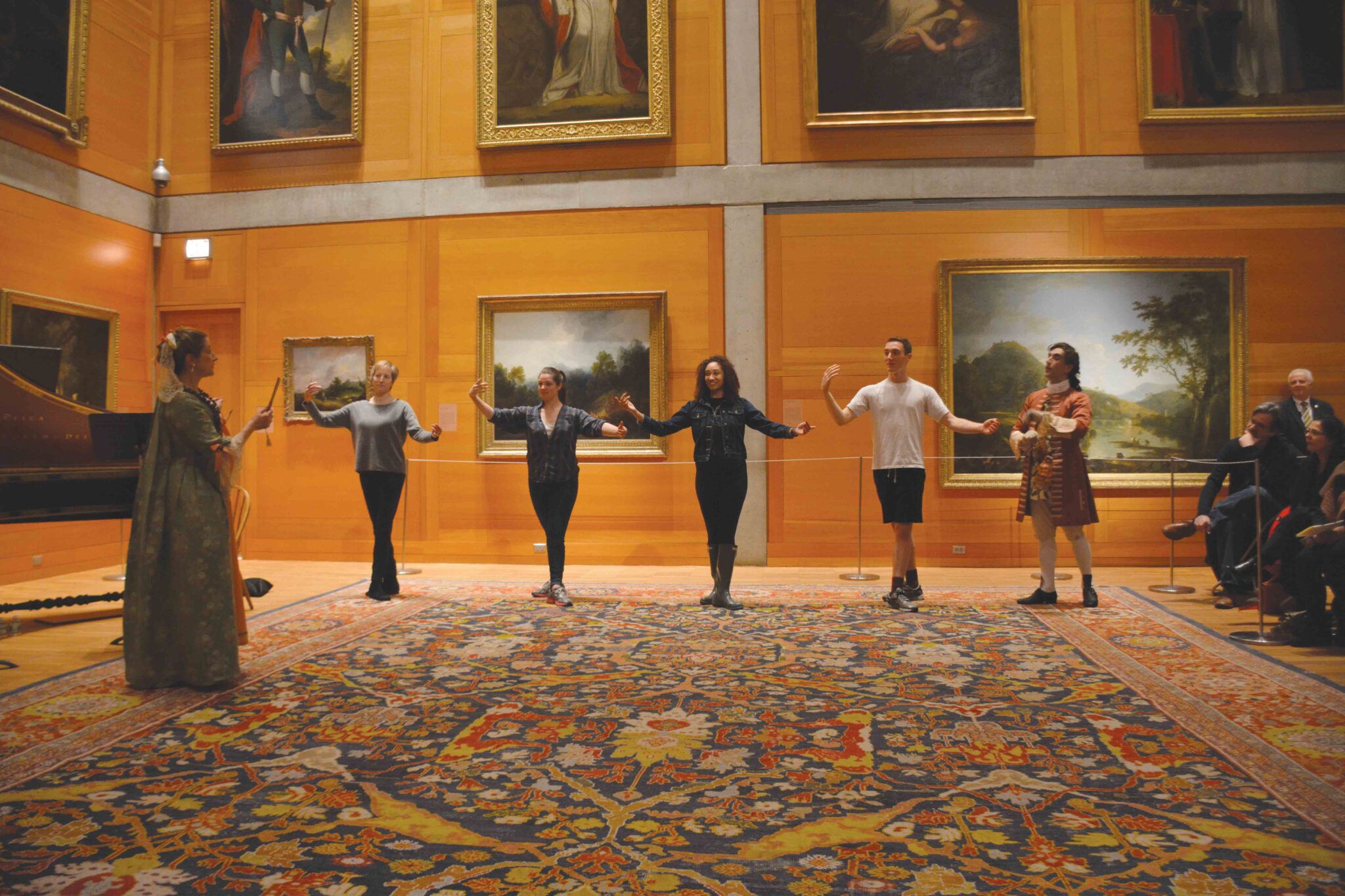
A new exhibit at the Yale Center for British Art highlights the legacies of three often-ignored British princesses who shaped not just their home country, but also the entire modern world.
“Enlightened Princesses: Caroline, Augusta, Charlotte and the Shaping of the Modern World” features close to three hundred objects from nearly 50 art collections, including the Royal Collection Trust, which loaned pieces from the private collection of the British royal family. The exhibition will be on display at the center until April 30 and explores the intellectual contributions of the three princesses, who lived from the late 17th to early 19th centuries.
“During my time working in Kensington Palace, I realized that there were important women who had shaped the building over three centuries,” said Joanna Marschner, the lead curator of the exhibit and a senior curator at Historic Royal Palaces, a charity in England that partnered with the YCBA for the initiative. “They are the unsung heroes in a written history dominated by men.”
Though visitors initially encounter a large, full-length portrait of each woman, the intimate portraits and personal artifacts of the subsequent rooms allow visitors to see the woman “behind the rule,” Marschner said. Tyler Griffith, a postdoctoral research associate at the YCBA who helped curate the exhibit, emphasized that the stories of each woman are told as much as possible through their own objects.
The exhibition explores how the three princesses influenced the court, intellectual and scientific thought, trade, commerce and our modern idea of philanthropy. Charitable gifts the princesses gave can be traced to hospitals that still exist today, according to Marschner. They also each made contributions to advancing the health of women and children.
“Much of what we recognize in the modern world can be directly attributed to the intellectual passions of these women, the interests they had and the things they were able to accomplish in their role of consorts,” Griffith said.
Each of the princesses hailed from Hanover, in modern day Germany, and married into the British Royal Family. Caroline, wife of George II, became queen in 1727. Augusta married Caroline’s eldest son, but she never became queen because her husband died young. However, Augusta’s son and Charlotte’s husband, George III, who reigned during the American Revolution, became king. The women were charged with raising and educating each of their multiple children, thereby influencing politics across Europe as they married each child into other European royal families.
One section of the exhibit emphasizes the women’s political roles through an analysis of how the politics of the time impacted their cultivation of Kew Gardens in London. Some of them embraced plants and structures from other locations, while others emphasized plants native to the area. Caroline, for example, was the first queen of the House of Hanover, so many of her decisions reflected the need to establish her dynasty’s right to the throne.
“The exhibit sheds light on their agency as connoisseurs and active players in the Enlightenment,” said Philippe Halbert GRD ’21, who studies 18th-century art history. He said he was impressed by the diversity and breadth of the items contained in the exhibition.
The process of putting together the exhibit began more than five years ago, said Marschner. According to Griffith, the pieces in the exhibit were selected from a pool of around 120 lenders and 2,000 objects.
The opening event featured remarks by Marschner and a performance by Yale School of Drama students. In conjunction with the exhibition, the YCBA will host a number of lectures, gallery talks and film screenings.
This past Tuesday, baroque dancers from the Mercurius Company performed, and Lisa Ford, assistant director of research at the YCBA, gave a gallery talk on “Heritage, History and Holbein: Queen Caroline’s Picture Closet.”
The next event will be a gallery talk on family portraits by Laura Wexler, professor of American Studies and Women, Gender and Sexuality Studies next Tuesday.







